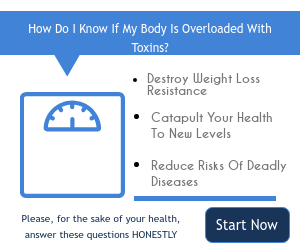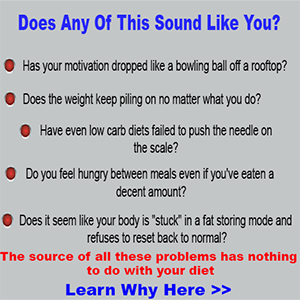The 12 DIRTIEST Foods You're Currently Eating (and it's killing you)
By Kevin DiDonato MS, CES--Level 1 Certified Precision Nutrition and Cerfified Personal Trainer
 What is the number ONE thing that strikes fear into your heart?
What is the number ONE thing that strikes fear into your heart?
Could it be spiders? Or poor health? Not fitting into your skinny jeans? Or dying a premature death?
Now, everyone has different fears – and they are all valid – that may cause your knees to buckle or for a mild to severe panic attack.
But when it comes to your health, what causes you the most fear?
Weight gain? Developing cancer? Having a heart attack?
Most of these fears are very common. And, each one of these health scares may be preventable.
You see, the foods you eat can dramatically change how your cells go from happy, healthy ones to unhealthy cells.
And, those foods – as healthy as you might think they are – could actually fall under the “dirty” category.
Not as in cleanliness or sugary or high fat.
But, dirty in a more sinister way…
The Dirtiest Foods
You have heard the term “clean” when it comes to eating.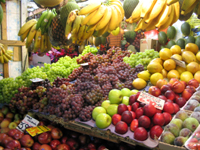
This type of plan eliminates processed and refined foods, high sugar foods, or basically unhealthy foods, and focuses more on having foods that are closest to their natural source.
But, when we refer to “dirty” foods, we are referring to natural foods that have been exposed to high levels of pesticides, herbicides, or other harmful chemical agents.
And, these chemicals may lead to many changes in your body.
For example, some pesticides have been linked to cancer and other changes to your healthy cells.
So when you are buying foods – namely fruits and vegetables - you may be getting more than what you bargained for.
That’s where the “dirty” comes from.
Guess what? Some of your favorites may be “dirty”…
Here is a short list of some of the more common dirty foods:
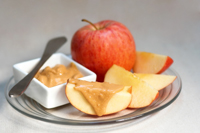 Apples – since apples are commonly exposed to external threats (fungus, insects, etc.), they are often treated with pesticides and herbicides in order to keep them fresh.
Apples – since apples are commonly exposed to external threats (fungus, insects, etc.), they are often treated with pesticides and herbicides in order to keep them fresh.
Strawberries – strawberries are routinely swarmed by both insects and fungus alike. They are commonly sprayed with both pesticides and herbicides, which could linger on the berries long after they get to the market – and to your house.
Cherry Tomato – these tiny veggies have been shown to contain a lot of pesticide residue – which makes them a very dirty food product. Simple tip to avoid the pesticide: grow your own or look for a local organic farmer or organic section in your favorite grocery store.
Cucumbers – another favorite topper for salad (with cherry tomatoes). Cucumbers may have trace amounts of many different pesticides. Peeling the skin may remove most of the pesticides (but who remembers to peel the skin from cucumbers?) and may reduce your pesticide exposure.
Coffee Beans – although not something typically eaten, coffee beans may contain high amounts of pesticides and other chemicals. There are many varieties of coffee beans that are not grown in this country, which could leave the possibility of your favorite bean being exposed to pesticides or other harmful chemicals.
Cherries--as great as cherries are for your health, they routinely make the list of one of the dirtiest foods. When tested, cherries contain 42 different pesticides of which, 5 were known carcinogens and 20 were considered hormone disruptors.
Spinach--the USDA Pesticide Data Program found a whopping 54 different pesticide residues, 7 of which are considered carcinogens. Even though they may be washed and cut before you get them, it's still a good idea to thorough wash your spinach treat with vinegar.
Celery--one of my favorite snacks to munch on is celery and peanut butter. That was until I discovered how may pesticides are found in celery. 64 different pesticide residues were found on celery, with 10 of them being carcinogens and 12 of them being known neurotoxins.
Sweet Bell Peppers--another popular salad topper, sweet bell peppers also rank pretty high on the list of pesticide-laden foods. After testing sweet bell peppers, they were found to contain up to 53 different pesticides with 3 of them being carcinogens and the rest a mix of hormone-disruptors and neurotoxins.
Potatoes--even though potatoes grow in the ground, doens't mean they aren't covered in chemicals or pesticides. Even though the numbers may be lower, 35 pesticides were detected on potatoes.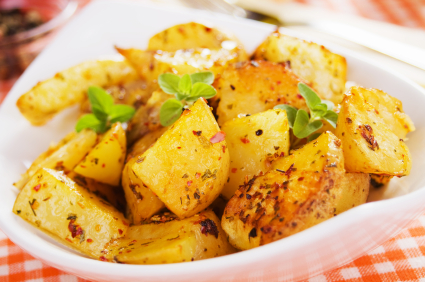
Peaches--yes, they grow on trees which puts them at risk for different bugs and worms from devouring them. This would explain why the residue of 62 different pesticides was found on the peaches.
Blueberries--I love a good blueberry, but that may change knowing just how many different pesticides may be present in these tiny berries. There have been 52 different pesticides detected on blueberries, which could post a significant risk to your health.
*** Also noted, most of the pesticides and toxins found on these dirty foods also have a environmental impact attached to them. Most of these chemicals and pesticides may harm the honeybee population.***
The Solution
In order to reduce your exposure to many pesticides and chemicals, you should thoroughly wash all your fruits and vegetables.
This may cut your exposure down significantly, however, not totally.
Your best bet for reducing your exposure is to shop for more organic produce that may have less exposure to chemicals and pesticides.
Foods like watermelon, cabbage, sweet potatoes, bananas, and Brussels sprouts (to name a few) may contain less chemical and pesticide residue, therefore making them better options.
For better health, take the necessary steps to reduce your exposure to harmful chemicals and pesticides by growing your own, or shopping organically.
About Jayson Hunter & Jaylab Pro

Jaylab Pro was founded by Registered Dietitian Jayson Hunter. Jayson has been recognized as one of America's foremost weight loss experts by America's Premier Experts™. He has also been featured in USA Today for this accomplishment. Jayson is also a best-selling author having co-authored multiple books in health & fitness and business growth. Jayson and the Jaylab Pro team are proud to create content that helps improve the lives of millions of people around the world. We hope you enjoy it just as much as others have.
 If you order a JayLabPro SmartShip product or any Combo Package, we will automatically ship you a new supply of the product or products you have ordered every month, starting 30 days after your initial order is shipped, and continuing until you cancel. The credit card you are using today will be billed the lowest available price for those product or products when your order is shipped, but shipping will be FREE. You may log into your customer account or call our customer service department toll-free at 1-888-9GETPRO (1-888-943-8776) between the hours of 8am – 9pm EST Mon-Fri to cancel future shipments, customize the timing of your shipments, or change the credit card used for billing.
If you order a JayLabPro SmartShip product or any Combo Package, we will automatically ship you a new supply of the product or products you have ordered every month, starting 30 days after your initial order is shipped, and continuing until you cancel. The credit card you are using today will be billed the lowest available price for those product or products when your order is shipped, but shipping will be FREE. You may log into your customer account or call our customer service department toll-free at 1-888-9GETPRO (1-888-943-8776) between the hours of 8am – 9pm EST Mon-Fri to cancel future shipments, customize the timing of your shipments, or change the credit card used for billing.




